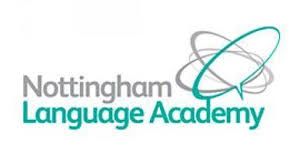
Effective Project Planning and Scheduling
Course ID: 2508180101155ESH
Course Dates : 18/08/25 Course Duration : 5 Studying Day/s Course Location: London, UK
Language: Bilingual
Course Category: Professional and CPD Training Programs
Course Subcategories: Project Management and Quality Assurance
Course Certified By: ESHub CPD & LondonUni - Executive Management Training
* Professional Training and CPD Programs
Leading to:
Executive Diploma Certificate
Leading to:
Executive Mini Masters Certificate
Leading to
Executive Masters Certificate
Certification Will Be Issued From :
From London, United Kingdom
Course Fees: £5,120.30
Vat Not Included in the price. VAT may vary depending on the country where the course or workshop is held.
Click to Pay
Date has passed please contact us Sales@e-s-hub.com
Course Information
Introduction
Project planning and scheduling are critical components of successful project management, influencing the efficiency, cost-effectiveness, and overall success of initiatives across industries. In an era where organizations face increasing pressure to deliver results within tight timelines and limited resources, mastering these skills is not merely advantageous—it is essential. The ability to create robust plans, allocate resources effectively, and anticipate potential roadblocks ensures that projects remain on track and align with organizational goals. This course addresses the growing demand for professionals who can navigate the complexities of modern project environments while maintaining a strategic focus.
Despite its importance, project planning and scheduling often present significant challenges for practitioners. A common gap lies in the misalignment between high-level strategies and day-to-day execution, leading to delays, budget overruns, and stakeholder dissatisfaction. For instance, a study by the Project Management Institute (PMI) revealed that poor planning contributes to nearly 37% of failed projects. Furthermore, many professionals struggle with translating theoretical frameworks into actionable steps due to a lack of practical tools or experience. By addressing these gaps, this course empowers participants to bridge the divide between theory and practice, equipping them with the skills necessary to design and execute effective project schedules.
The benefits of mastering project planning and scheduling extend beyond individual career growth; they also drive organizational success. Research has shown that well-planned projects are 2.5 times more likely to meet their objectives compared to those with inadequate preparation. Organizations that invest in training their teams in these areas report higher productivity, improved resource utilization, and enhanced client satisfaction. For individuals, proficiency in project planning enhances leadership capabilities, fosters collaboration, and positions them as indispensable assets within their teams. These competencies are particularly valuable in industries such as construction, IT, healthcare, and manufacturing, where precise coordination is paramount.
To provide a deeper understanding of the subject matter, this course integrates established theories and frameworks such as the Critical Path Method (CPM), Gantt charts, and Agile methodologies. Participants will explore how these tools can be adapted to various contexts, ensuring flexibility and relevance. For example, consider a case study from the automotive industry where Tesla successfully implemented advanced scheduling techniques to accelerate production timelines for its electric vehicles. By analyzing real-world examples like this, participants gain insight into how effective planning drives innovation and competitive advantage.
Moreover, the course emphasizes the human element of project management, recognizing that even the most meticulously crafted schedules require strong communication and stakeholder engagement. Through interactive sessions and group activities, participants will learn how to manage expectations, resolve conflicts, and foster teamwork—all crucial elements of successful project execution. Anecdotal evidence from past participants highlights the transformative impact of these skills, with one manager noting, “This training completely changed how I approach deadlines and team dynamics.”
Ultimately, "Effective Project Planning and Scheduling" serves as a comprehensive guide for professionals seeking to elevate their project management capabilities. Whether you are new to the field or looking to refine your expertise, this course provides the knowledge, tools, and confidence needed to excel. By blending theory with hands-on application, it prepares participants to tackle complex challenges head-on, delivering value to both themselves and their organizations.
Objectives
By attending this course, participants will be able to:
Analyze project requirements and constraints to develop comprehensive project plans.
Design realistic project schedules using industry-standard tools and methodologies.
Evaluate risks and uncertainties to implement contingency measures proactively.
Apply resource allocation strategies to optimize productivity and minimize waste.
Implement monitoring techniques to track progress and identify deviations early.
Synthesize feedback from stakeholders to refine project plans and improve outcomes.
Integrate Agile principles into traditional planning frameworks for greater adaptability.
Who Should Attend?
This course is ideal for:
Project managers, team leaders, and coordinators responsible for overseeing project timelines and deliverables.
Consultants and analysts tasked with improving operational efficiency and project performance.
Engineers, architects, and technical professionals involved in large-scale projects requiring meticulous planning.
Entrepreneurs and business owners seeking to enhance their ability to manage internal and external projects.
These groups will find the course invaluable because it addresses common pain points such as missed deadlines, inefficient workflows, and poor resource management. While beginners will benefit from foundational knowledge, intermediate learners will gain advanced insights into optimizing existing processes. Advanced practitioners may also appreciate the opportunity to refresh their skills and incorporate emerging trends into their practices.
Training Method
• Pre-assessment
• Live group instruction
• Use of real-world examples, case studies and exercises
• Interactive participation and discussion
• Power point presentation, LCD and flip chart
• Group activities and tests
• Each participant receives a 7” Tablet containing a copy of the presentation, slides and handouts
• Post-assessment
Program Support
This program is supported by:
* Interactive discussions
* Role-play
* Case studies and highlight the techniques available to the participants.
Daily Agenda
Daily Schedule (Monday to Friday)
- 09:00 AM – 10:30 AM Technical Session 1
- 10:30 AM – 12:00 PM Technical Session 2
- 12:00 PM – 01:00 PM Technical Session 3
- 01:00 PM – 02:00 PM Lunch Break (If Applicable)
- Participants are expected to engage in guided self-study, reading, or personal reflection on the day’s content. This contributes toward the CPD accreditation and deepens conceptual understanding.
- 02:00 PM – 04:00 PM Self-Study & Reflection
Please Note:
- All training sessions are conducted from Monday to Friday, following the standard working week observed in the United Kingdom and European Union. Saturday and Sunday are official weekends and are not counted as part of the course duration.
- Coffee and refreshments are available on a floating basis throughout the morning. Participants may help themselves at their convenience to ensure an uninterrupted learning experience Provided if applicable and subject to course delivery arrangements.
- Lunch Provided if applicable and subject to course delivery arrangements.
Course Outlines
Foundations of Project Planning
Understanding the role of project planning in achieving organizational goals.
Key components of a project plan: scope, timeline, budget, and quality standards.
Introduction to project management frameworks (e.g., PMBOK, PRINCE2).
Identifying project stakeholders and defining their roles.
Day 2:
Tools and Techniques for Scheduling
Overview of scheduling methodologies: Waterfall vs. Agile.
Creating Gantt charts and work breakdown structures (WBS).
Using software tools like Microsoft Project and Asana for scheduling.
Applying the Critical Path Method (CPM) to prioritize tasks.
Day 3:
Risk Management and Contingency Planning
Identifying potential risks and assessing their impact.
Developing risk mitigation strategies and contingency plans.
Incorporating buffer time into project schedules.
Case study analysis: Lessons learned from high-risk projects.
Day 4:
Resource Allocation and Optimization
Best practices for allocating human, financial, and material resources.
Balancing workload distribution to prevent burnout.
Utilizing resource leveling techniques to address conflicts.
Monitoring resource utilization metrics for continuous improvement.
Day 5:
Monitoring, Evaluation, and Continuous Improvement
Setting up key performance indicators (KPIs) to measure project success.
Conducting regular reviews and status updates with stakeholders.
Adapting plans based on real-time data and feedback loops.
Closing projects effectively and documenting lessons learned.



















































